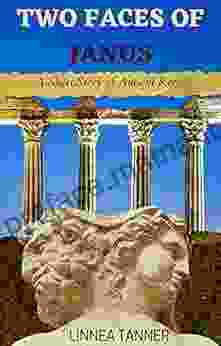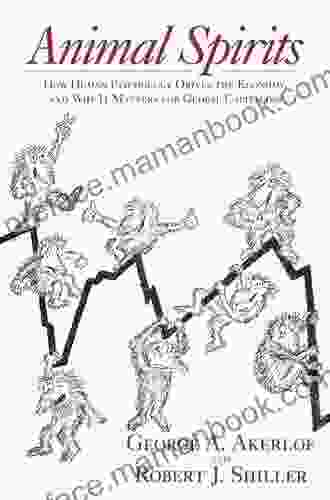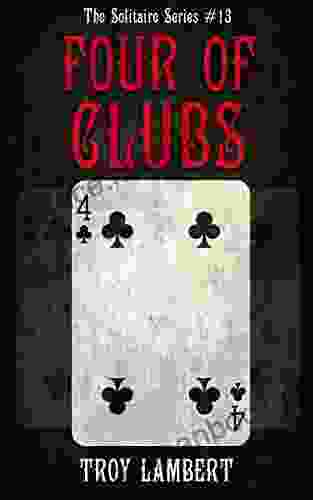Ancient Rome: A Historical Odyssey

The annals of human history are replete with civilizations that have risen to great heights, only to ultimately crumble into dust. Among these fallen empires, none is more captivating than that of ancient Rome. Spanning nearly a millennium, from its humble beginnings as a small settlement on the Italian peninsula to its zenith as a vast and prosperous empire, Rome's story is a tapestry woven with both triumph and tragedy.
The Dawn of a CivilizationThe origins of Rome can be traced back to the 8th century BC, when Italic tribes established a settlement on the banks of the Tiber River. According to legend, the city was founded by the twin brothers Romulus and Remus, who were raised by a she-wolf. While the historical veracity of this tale may be questionable, it nevertheless serves as a testament to the enduring power of myth and legend in shaping the Roman consciousness.
Expansion and ConquestIn its early centuries, Rome gradually expanded its influence over the surrounding region, subduing neighboring tribes and consolidating its control over the Italian peninsula. However, it was not until the 3rd century BC that Rome embarked on a path of aggressive conquest that would ultimately reshape the Mediterranean world.
4.9 out of 5
| Language | : | English |
| File size | : | 892 KB |
| Text-to-Speech | : | Enabled |
| Screen Reader | : | Supported |
| Enhanced typesetting | : | Enabled |
| Word Wise | : | Enabled |
| Print length | : | 39 pages |
Through a series of hard-fought wars, Rome defeated powerful rivals such as Carthage and Macedonia, establishing itself as the dominant power in the region. By the 1st century BC, the Roman Empire had stretched from Britain to Egypt, encompassing a vast and diverse array of cultures and peoples.
The Roman RepublicDuring the early years of its expansion, Rome was governed by a republican system. Power was shared between a senate, composed of wealthy and influential citizens, and a series of elected officials, including consuls and tribunes.
The Roman Republic was characterized by a complex system of checks and balances, designed to prevent any one individual or group from accumulating too much power. However, as the empire grew in size and complexity, the republican system began to show its strains.
The Rise of EmpireIn the late 1st century BC, a series of civil wars and political crises plunged Rome into chaos. Out of this turmoil emerged Julius Caesar, a brilliant general and ambitious politician. In 49 BC, Caesar crossed the Rubicon River, an act that sparked a civil war that would ultimately lead to his victory.
Caesar established himself as dictator of Rome and, during his brief reign, implemented a series of reforms that would have a profound impact on the empire. He reorganized the government, reformed the calendar, and expanded the empire's borders.
After Caesar's assassination in 44 BC, his adopted son and heir, Octavian, emerged victorious from a new round of civil wars. In 27 BC, Octavian was granted the title of Augustus, marking the beginning of the Roman Empire.
The Imperial EraThe Roman Empire under Augustus and his successors enjoyed a period of unprecedented prosperity and stability. The Pax Romana, or Roman Peace, allowed for the flourishing of culture, trade, and technology.
Rome became a cosmopolitan center, attracting scholars, artists, and merchants from around the known world. The empire's infrastructure, including its extensive road system and aqueducts, was unmatched in its time.
However, the imperial era was not without its challenges. The vastness of the empire made it difficult to govern effectively, and the Roman economy was plagued by inflation and inequality. Moreover, the empire faced constant threats from barbarian tribes on its frontiers.
Decline and FallIn the 3rd century AD, the Roman Empire began to show signs of decline. A series of political crises, economic instability, and military defeats weakened the empire. In 395 AD, the empire was permanently divided into two halves, the Western Roman Empire and the Eastern Roman Empire.
The Western Roman Empire continued to decline and eventually collapsed in 476 AD, when the last Roman emperor, Romulus Augustulus, was deposed by a Germanic chieftain. The Eastern Roman Empire, also known as the Byzantine Empire, survived for another thousand years but eventually fell to the Ottoman Turks in 1453.
Legacy of RomeDespite its eventual demise, the Roman Empire left an enduring legacy on the world. Roman law, architecture, literature, and philosophy continue to shape our civilization today.
The Roman Empire's concept of citizenship and its system of government influenced the development of modern democracies. Its language, Latin, became the lingua franca of the Western world for centuries.
Moreover, Rome's cultural achievements continue to inspire and captivate us. The works of Roman writers such as Virgil, Ovid, and Cicero are still widely read and studied. Roman sculptures and architecture are among the most iconic and recognizable works of art in the world.
The story of ancient Rome is one of triumph and tragedy, ambition and hubris. It is a story that has been told and retold for centuries, inspiring awe and wonder in countless generations.
Rome's legacy is a complex and multifaceted one, reflecting both the brilliance and the flaws of human civilization. It is a legacy that continues to shape our world today, reminding us of the heights to which humanity can rise and the depths to which it can fall.
4.9 out of 5
| Language | : | English |
| File size | : | 892 KB |
| Text-to-Speech | : | Enabled |
| Screen Reader | : | Supported |
| Enhanced typesetting | : | Enabled |
| Word Wise | : | Enabled |
| Print length | : | 39 pages |
Do you want to contribute by writing guest posts on this blog?
Please contact us and send us a resume of previous articles that you have written.
 Top Book
Top Book Novel
Novel Fiction
Fiction Nonfiction
Nonfiction Literature
Literature Paperback
Paperback Hardcover
Hardcover E-book
E-book Audiobook
Audiobook Bestseller
Bestseller Classic
Classic Mystery
Mystery Thriller
Thriller Romance
Romance Fantasy
Fantasy Science Fiction
Science Fiction Biography
Biography Memoir
Memoir Autobiography
Autobiography Poetry
Poetry Drama
Drama Historical Fiction
Historical Fiction Self-help
Self-help Young Adult
Young Adult Childrens Books
Childrens Books Graphic Novel
Graphic Novel Anthology
Anthology Series
Series Encyclopedia
Encyclopedia Reference
Reference Guidebook
Guidebook Textbook
Textbook Workbook
Workbook Journal
Journal Diary
Diary Manuscript
Manuscript Folio
Folio Pulp Fiction
Pulp Fiction Short Stories
Short Stories Fairy Tales
Fairy Tales Fables
Fables Mythology
Mythology Philosophy
Philosophy Religion
Religion Spirituality
Spirituality Essays
Essays Critique
Critique Commentary
Commentary Glossary
Glossary Bibliography
Bibliography Index
Index Table of Contents
Table of Contents Preface
Preface Introduction
Introduction Foreword
Foreword Afterword
Afterword Appendices
Appendices Annotations
Annotations Footnotes
Footnotes Epilogue
Epilogue Prologue
Prologue Stephen Massicotte
Stephen Massicotte Nia Sharland
Nia Sharland Lydia St Giles
Lydia St Giles Eric Brunsell
Eric Brunsell Kimberly Morrow Leong
Kimberly Morrow Leong Cheryle R Hart
Cheryle R Hart William Blake
William Blake John Mccrae
John Mccrae Joan Houlihan
Joan Houlihan Henry Steel Olcott
Henry Steel Olcott David Baker
David Baker Paula Disbrowe
Paula Disbrowe Natalie Keller Reinert
Natalie Keller Reinert J J Zerr
J J Zerr Rebecca Jenshak
Rebecca Jenshak Karthik C
Karthik C Clare Chase
Clare Chase Brandon Q Morris
Brandon Q Morris Andy Greenberg
Andy Greenberg Felicia Guy Lynch
Felicia Guy Lynch
Light bulbAdvertise smarter! Our strategic ad space ensures maximum exposure. Reserve your spot today!

 Russell MitchellUnveiling Pockets of Bureaucratic Effectiveness in Developing States: A...
Russell MitchellUnveiling Pockets of Bureaucratic Effectiveness in Developing States: A...
 David PetersonHow to Create Products and Services Customers Want: The Strategyzer Approach
David PetersonHow to Create Products and Services Customers Want: The Strategyzer Approach Ethan GrayFollow ·4.6k
Ethan GrayFollow ·4.6k Danny SimmonsFollow ·6.7k
Danny SimmonsFollow ·6.7k Dan BellFollow ·11.2k
Dan BellFollow ·11.2k Andres CarterFollow ·6.4k
Andres CarterFollow ·6.4k Percy Bysshe ShelleyFollow ·18.4k
Percy Bysshe ShelleyFollow ·18.4k Cameron ReedFollow ·19.2k
Cameron ReedFollow ·19.2k Thomas MannFollow ·12.9k
Thomas MannFollow ·12.9k Cody RussellFollow ·4.3k
Cody RussellFollow ·4.3k

 Vincent Mitchell
Vincent MitchellUnveiling the Enchanting Tale of Plant Reproduction: A...
Plants, the silent yet vibrant...

 Sam Carter
Sam CarterDelve into the Enigmatic World of "Relative Murder: A...
In the realm of mystery and suspense, the...
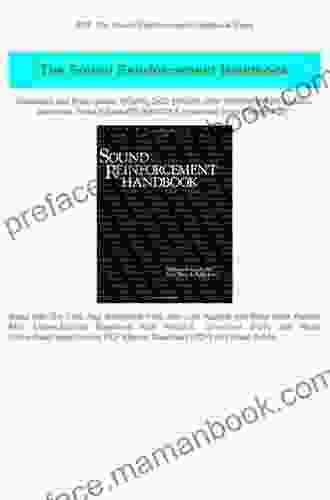
 Richard Simmons
Richard SimmonsThe Sound Reinforcement Handbook: A Comprehensive Guide...
In the realm of live sound engineering, The...
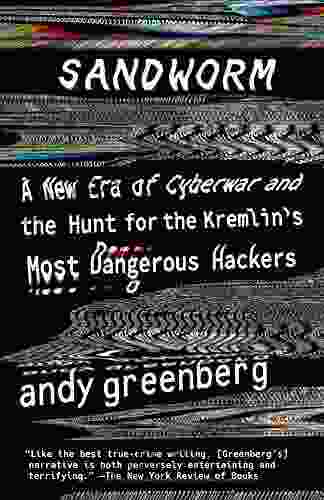
 Leo Tolstoy
Leo TolstoyEnter the New Era of Cyberwar: Unmasking the Kremlin's...
`` Prologue: The Digital...
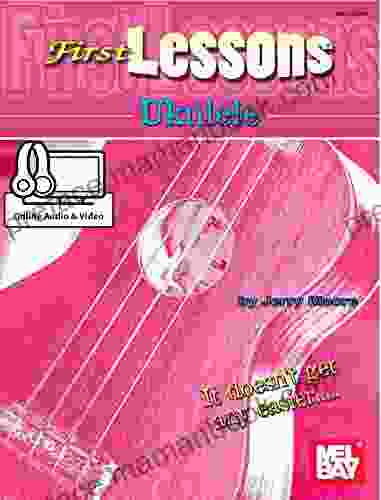
 Brenton Cox
Brenton CoxFirst Lessons Ukulele Bridget Baker: A Comprehensive...
Embarking on a musical journey with the...
4.9 out of 5
| Language | : | English |
| File size | : | 892 KB |
| Text-to-Speech | : | Enabled |
| Screen Reader | : | Supported |
| Enhanced typesetting | : | Enabled |
| Word Wise | : | Enabled |
| Print length | : | 39 pages |


